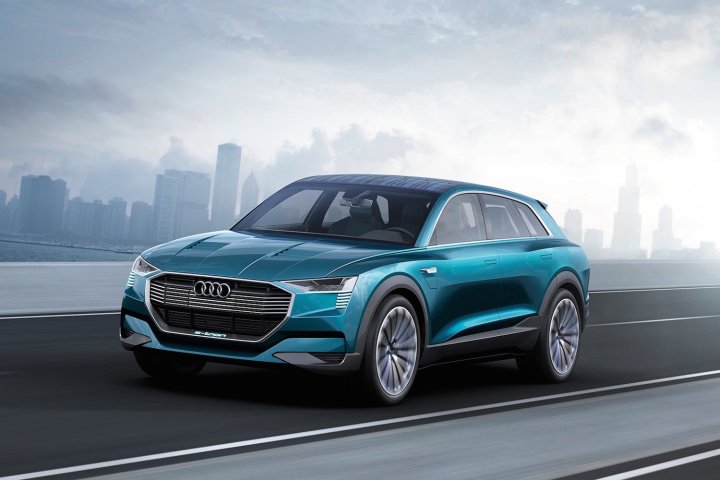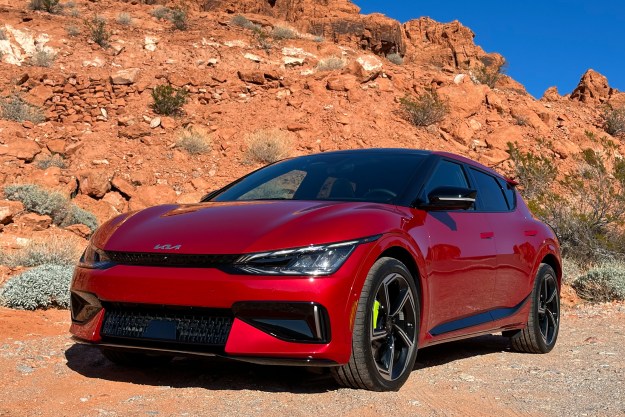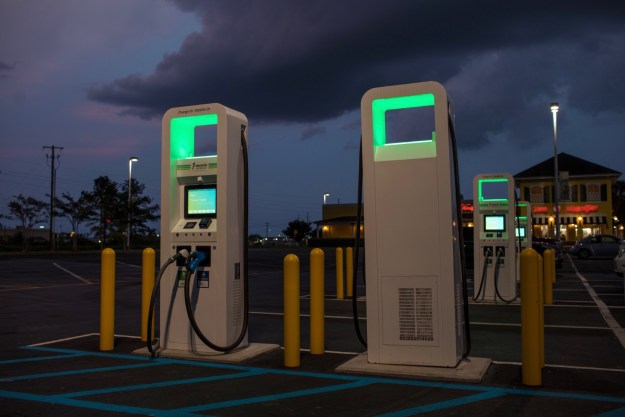
At the 2015 Los Angeles Auto Show, Audi of America president Scott Keogh announced that by 2025, Audi expects 25 percent of its U.S. sales to come from electric cars. That total likely includes both all-electric cars and plug-in hybrids, which still use internal-combustion engines, but can drive for significant distances solely on electric power.
The announcement echoes previous remarks by Keogh. He mentioned the 25 percent figure earlier this month in an interview with Automotive News (subscription required), saying that stricter emissions standards will soon make such aggressive sales targets necessary. U.S. Corporate Average Fuel Economy (CAFE) rules require carmakers to achieve a fleet average of 54.5 mpg (it’ll actually be closer to 40 mpg in the real world) by 2025, and California has a mandate that requires automakers to sell zero-emission vehicles.
Leading the Audi charge (no pun intended) is the A3 Sportback e-tron plug-in hybrid, which is just now going on sale in the U.S. A hatchback version of the A3 sedan and convertible already sold here, it uses a 1.4-liter turbocharged four-cylinder engine, working with an electric motor and lithium-ion battery pack. Audi will also sell the all-electric R8 e-tron, but in very limited numbers.
The Q7 e-tron plug-in hybrid is expected to arrive in the U.S. next year, followed by an all-electric SUV in 2018. Previewed by the e-tron quattro concept from the 2015 Frankfurt Motor Show, this model is expected to be a derivative of the upcoming Q6, Audi’s answer to the BMW X6 and Mercedes-Benz GLE Coupe “crossover coupes.”
Audi will also build a network of DC fast-charging stations to support the electric SUV. These stations can provide an 80 percent in 30 minutes, which Audi says will be good for 200 miles of driving in the electric vehicle. The carmaker hasn’t said how many stations it plans to build, but promises they’ll be operational when the electric SUV goes on sale in 2018.
Editors' Recommendations
- Fake engine noises in electric cars need to die
- Mercedes’ electric eSprinter isn’t just greener, it’s better
- Cadillac aims to balance its lineup with a small electric SUV
- Lamborghini teases its first all-electric supercar ahead of Friday’s big reveal
- The cheapest electric cars you can buy


